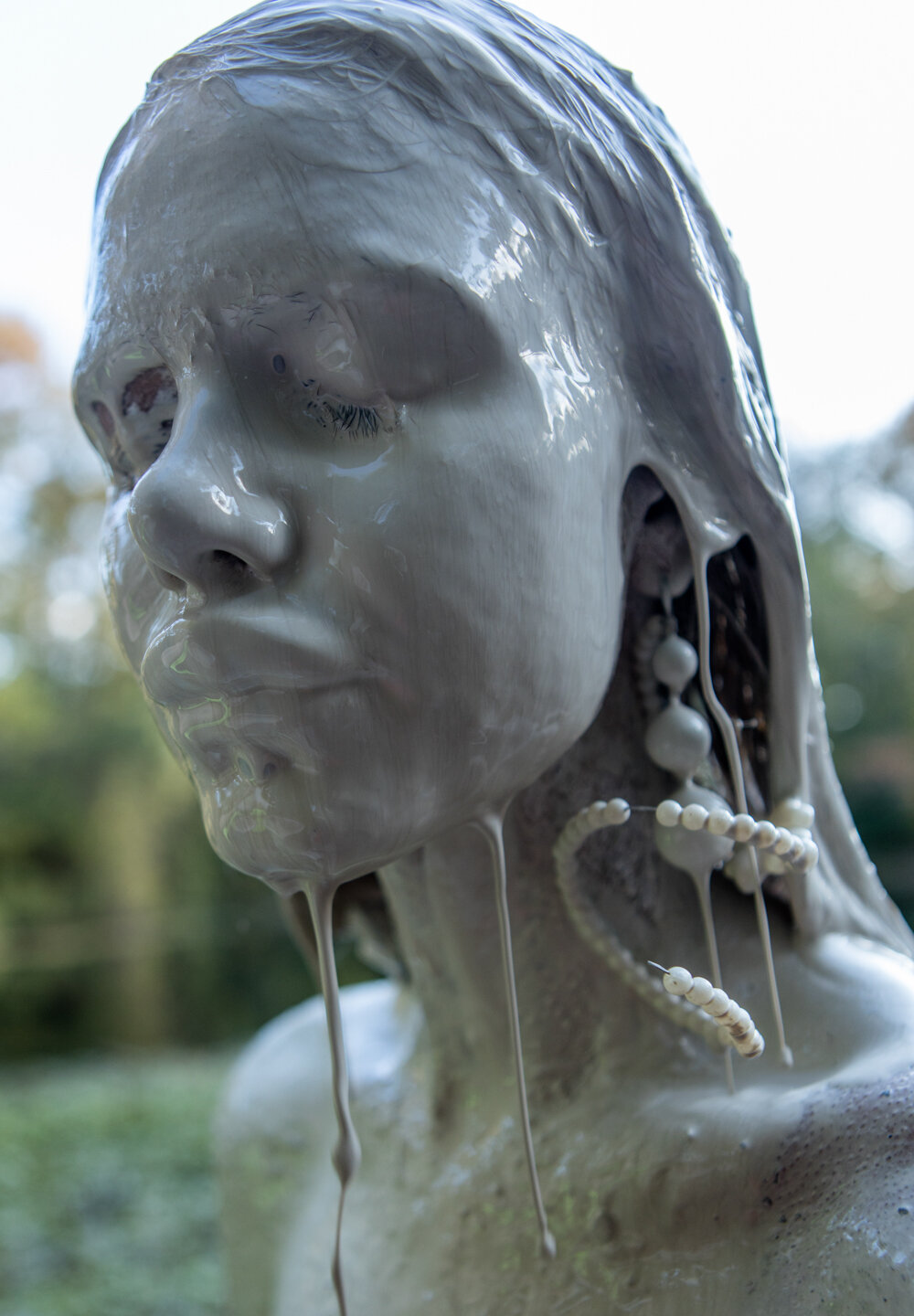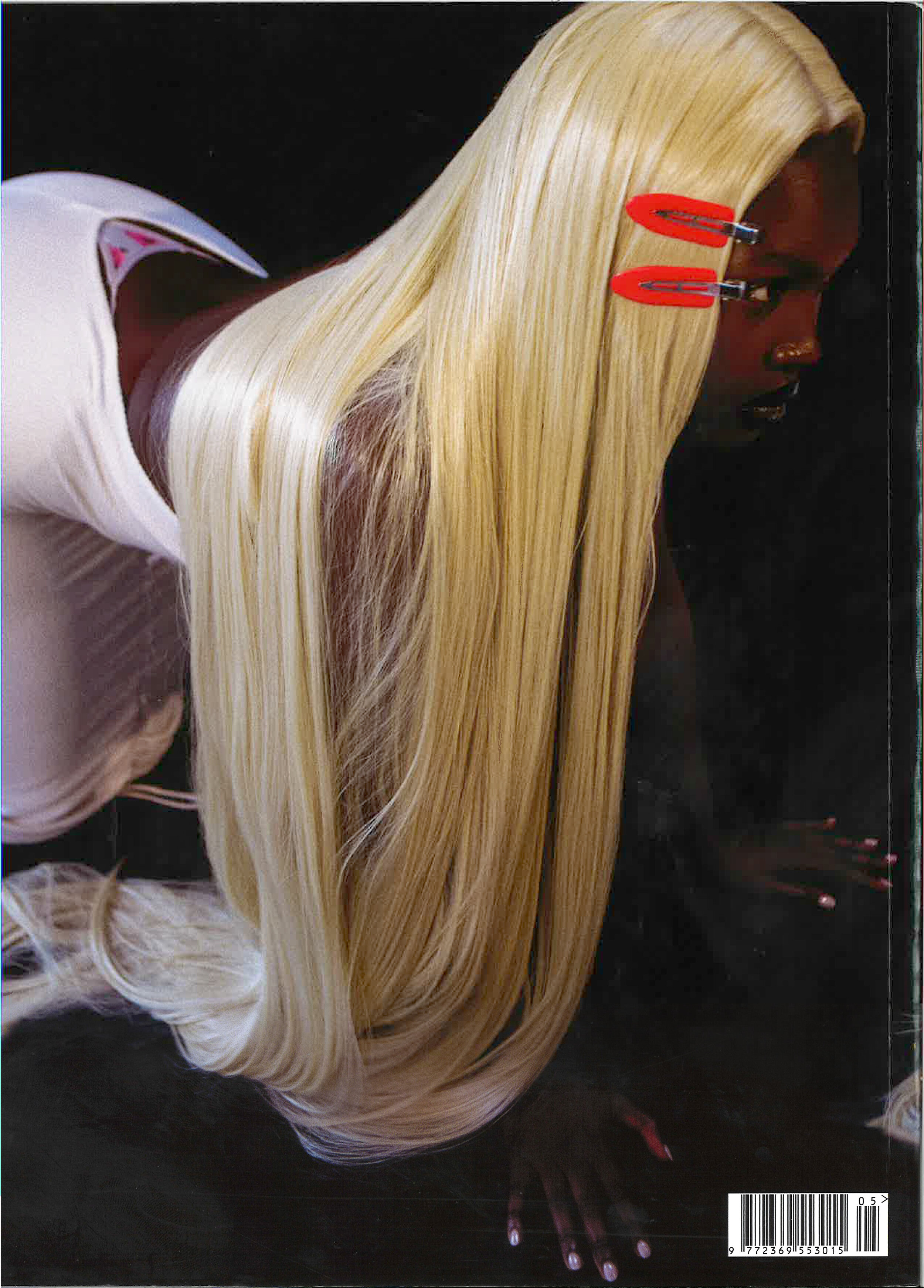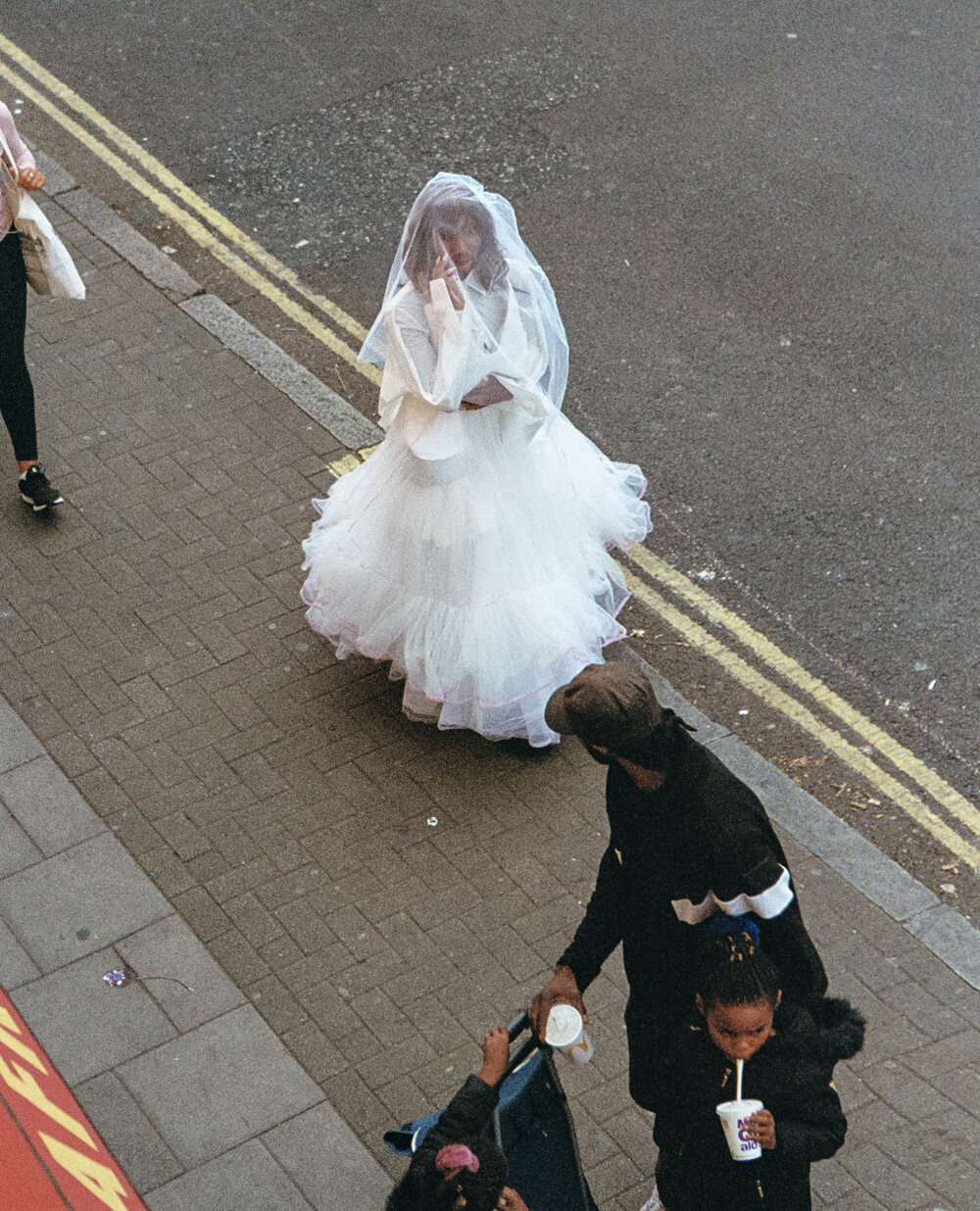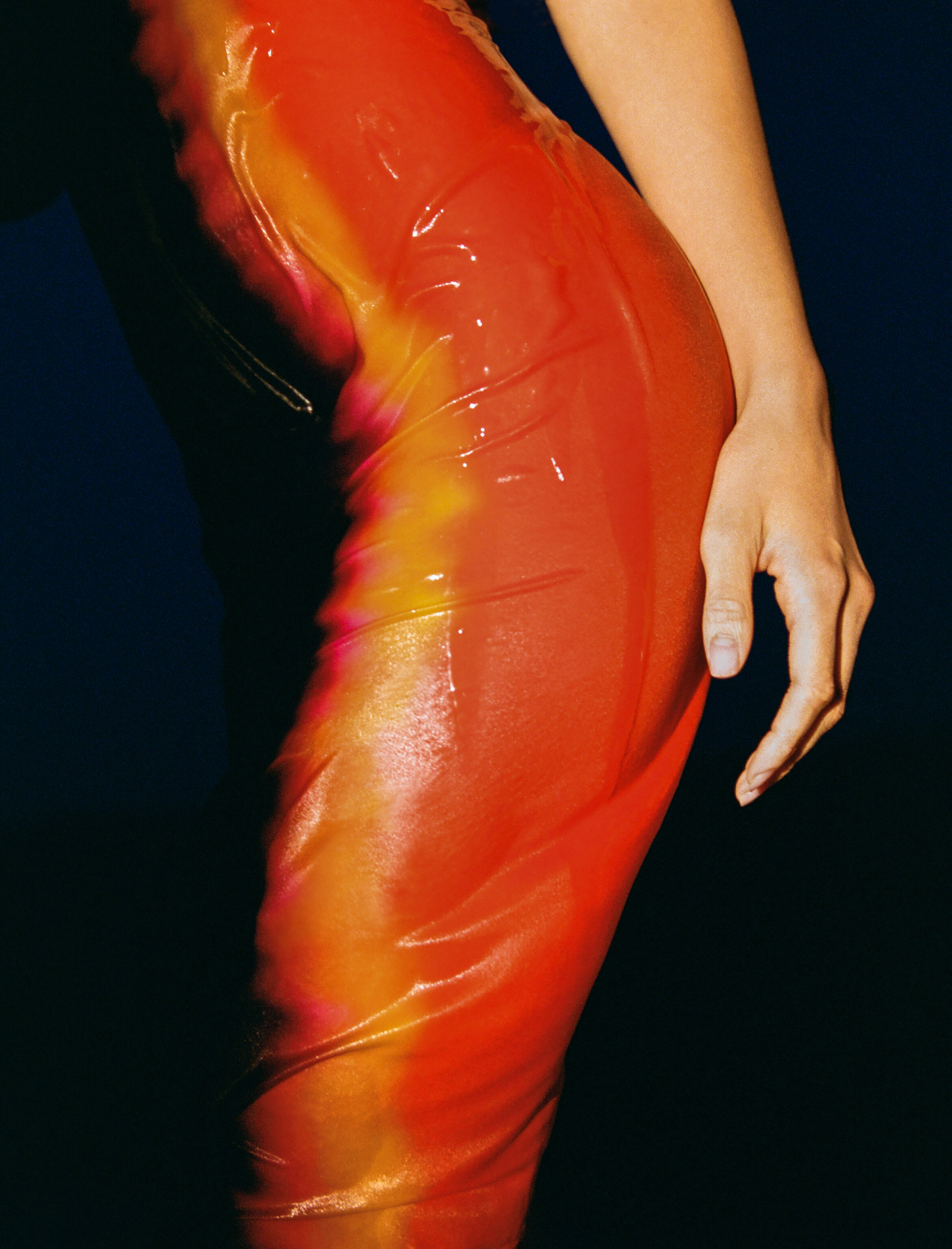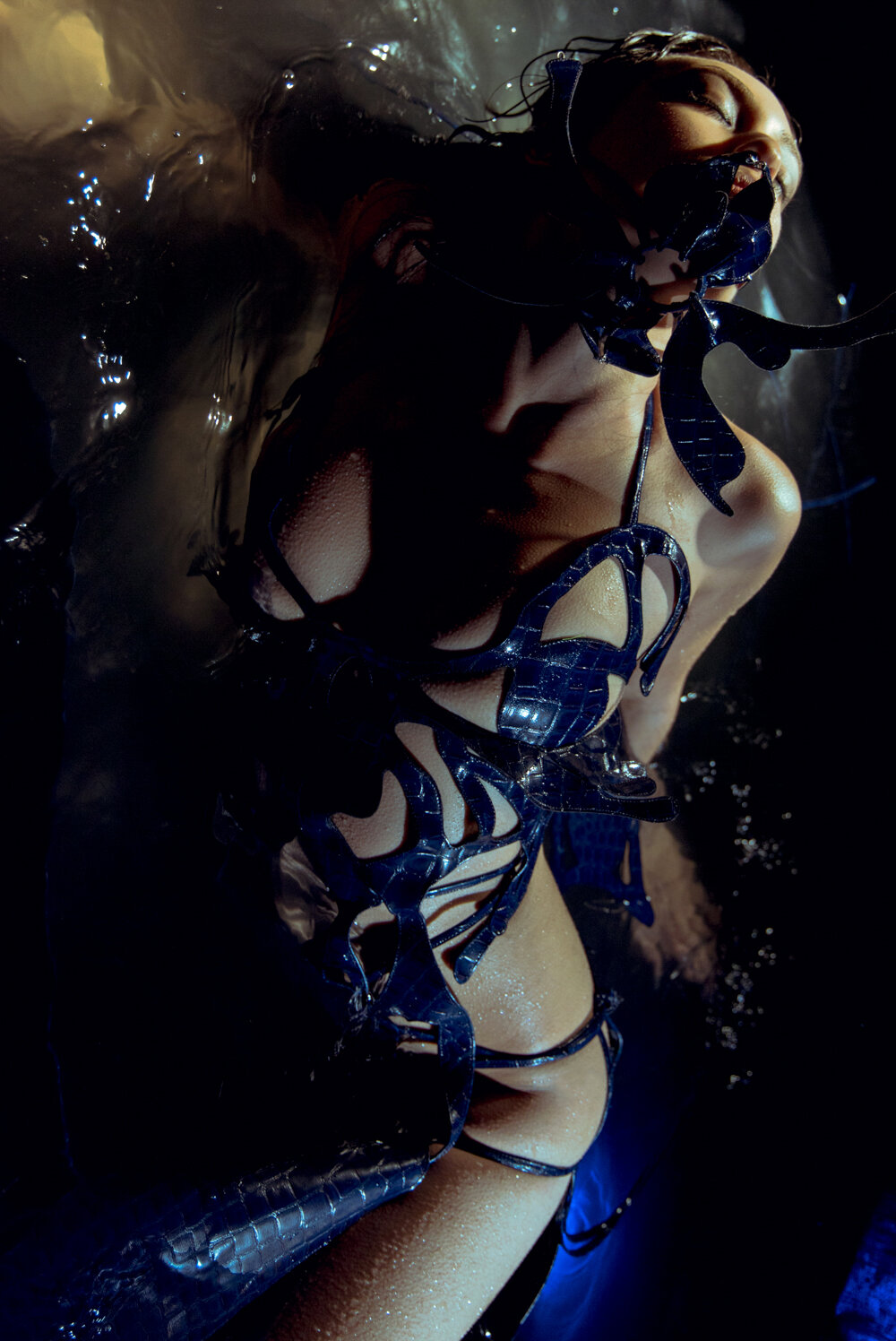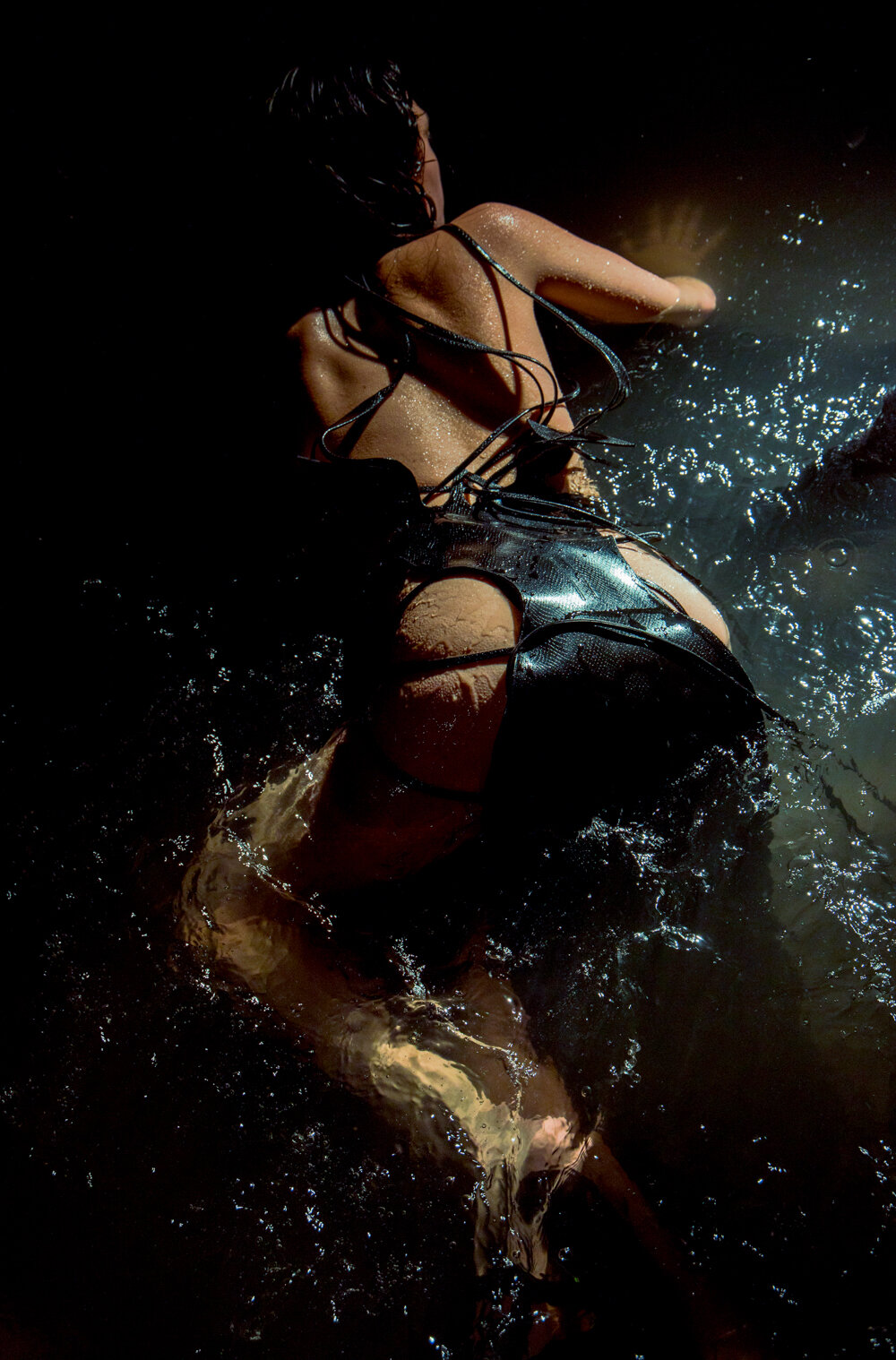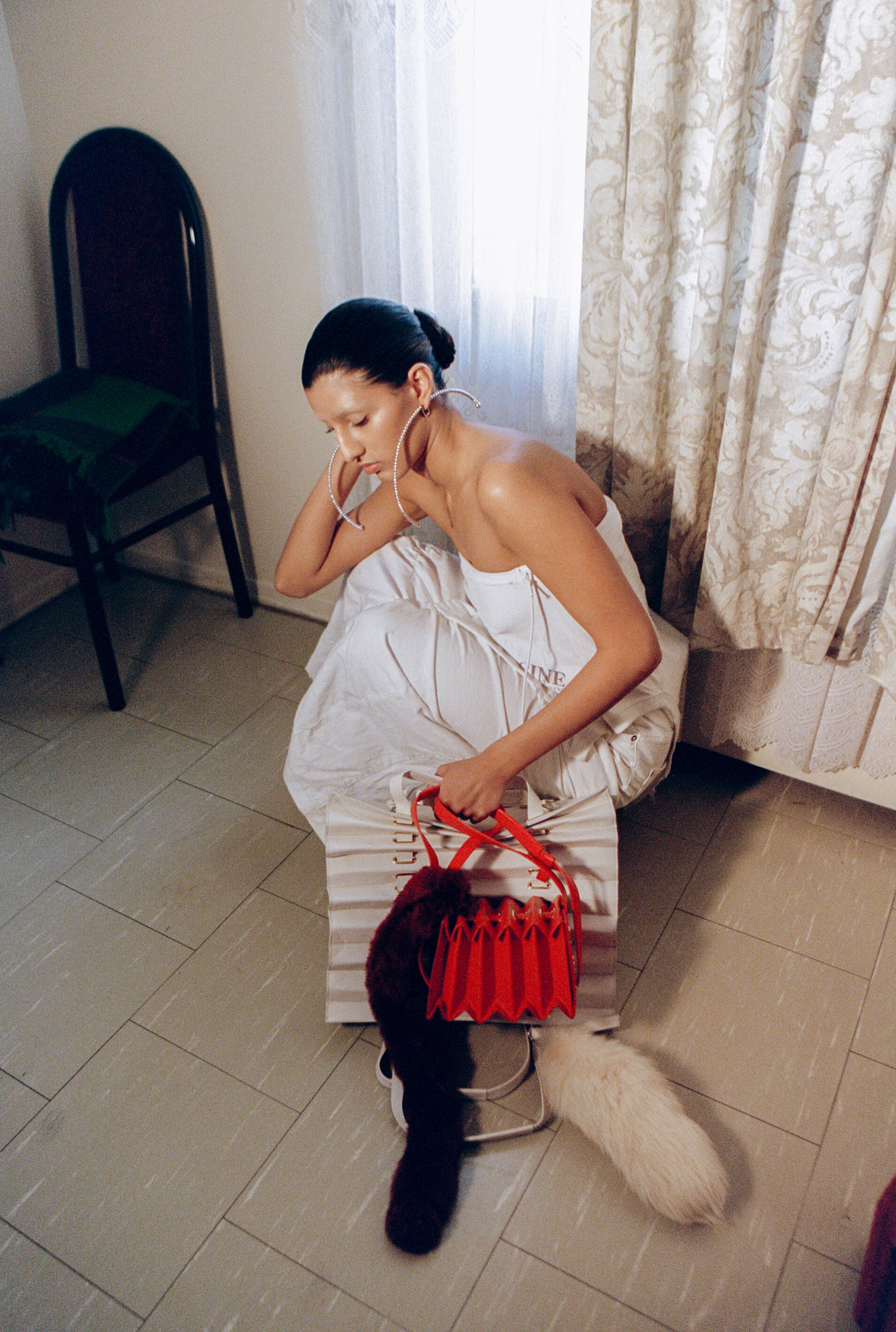https://www.coeval-magazine.com/coeval/neva-wireko
What do you see when you look in the mirror? A second chance.
Are you looking for yourself in the right places? Yes, under the bridge we built.
Are you running from something or towards it? In whatever direction the wind blows innocence in.
Canadian born, New York based photographer, Neva Wireko, waits for her eyes to adjust to the fading light as dusk bathes in its hushed luster. What lies composed in her viewfinder is the face of a stranger with scars exposed and a gaze that held you captive because it was haunted. The shutter whirs as shapes bloom, pixelating a bridge between endurance and tortured beauty. She puts a cap over her lens and embraces darkness as it shrouds and shrinks towards becoming, nodding her head in gratitude. Home was her horizon and she was on her way there.
Neva’s work straddles duality, its legs dangle off both sides as it rides the crests of emotion. Speaking a visual language only understood by those who descend easily into depth and empathize with moths as they fly towards a dying flame, Neva converses through collaboration and her portfolio includes the likes of Fenty, Y/Project, office and Contributor Magazines. The subjects that she chooses to shoot are a reflection of her own experiences and those who she collaborates with inform not only her process, but usher in the change of seasons akin to her own growth. Using photography as a medium to access, prune and tinker with the multiple layers of ourselves, relationships thus become a catalyst to see beauty with honesty and as resilience. The flame continues to smolder as Coeval speaks these things into existence, grazing over topics of innocence, early independence and what it means to turn weakness into power.
Lindsey: The eye you’ve developed is representative of the unique perspective you have. I think our experiences inform our respective lenses and I’d love to paint a picture of yours. Can you start by telling us about growing up in Canada and what you were exposed to there.
Neva: Growing up in Canada, specifically Toronto I lived in predominantly black and brown neighbourhoods where immigrant families settled. I was lucky to be exposed to a lot of cultural diversity, which I think really informed my fascination with people and stories.
Even though Toronto is considered a big city, it doesn’t really have a sense of identity within art and fashion compared to cities like New York or London. It’s kinda conservative and everyone’s style is pretty homogeneous. Before instagram was popular, there weren’t many visible creative influences around me that I resonated with. It seemed unrealistic and almost abstract to imagine what I do now.
Lindsey: Right so how did you get into photography then?
Neva: It wasn’t a traditional route I think, but as a child I was always creative, I loved to draw and paint. I particularly loved to imagine stories that I would turn into plays. I would rally up my friends to put on shows that we would perform for anyone who would watch. In high school I excelled in art and dabbled in graphic design, I tried going to college for it but I ended up dropping out once I realized I hated it.
Soon after I met a man who gave me my first opportunity as an intern at a small studio doing graphics. I had access to a fully equipped photo studio which gave me a chance to learn and practice the basics of photography on my own. I became decent at it and started freelancing. I would do really random shoots, pretty much any job I could get. At the time it was more of a hustle but deep down I really wanted it to be more.
I was blessed to later meet a lot of talented individuals who helped shape my eye and also became my collaborators and close friends. One of them was an ex-boyfriend (Othello Grey) who is also a photographer. Him and I shared a lot of similarities but were polar opposites in some ways. We were able to teach each other a lot and both of us experience significant growth as artists during our relationship. I also met other artists (musicians, djs, stylist, mua etc.) in the city through collaborative projects who shared similar interests as me -everyone played a role in shaping my sensibility. During this time the community around me reflected a world I was creating, this is when I really started to see my career take shape as a photographer.
Lindsey: There’s this quote by James Baldwin from an essay in which he shares his “personal notes on the relationship between mass culture and the creative artist.” He says that, “art and ideas come out of the passion and torment of experience. It’s impossible to have a real relationship to the first if one’s aim is to be protected from the second.” So, when you’re talking about things that are “dark,” which is a word that maybe pops into the minds of your audience when looking at your work, I think inherently we have to understand it as something that is also complex -- which maybe also makes it a bit more human and real. When I look at your work, what I get is feeling, a sense of poetry. Do you feel like you’re at all drawn to these concepts of pain and rawness, things with more emotional weight, because you also know from first hand experience that on the other side of survival is an opportunity to grow.
Neva : I’m often drawn to the darker side of reality, I think because I’m curious about the complexity of people and the universe...the things that are underneath the surface, there is so much to uncover and understand and I think I’ve always been attracted to the unknown.
Humans are fundamentally emotional creatures, we all experience emotions and I think in order to feel something we must have an emotional connection. You need to feel something whether it’s good or bad, unsettling or thrilling....so maybe I’m not so much trying to be intentionally “dark” but I’m trying to be felt.
Lindsey: I think to resonate with your work, it demands a level of depth and empathy often unreachable by the masses. It’s not as easily digested as the glossy spreads in Marie Claire, or Elle or something because it asks you to see things differently, to feel things.
Neva: I reflect a lot and I have realized how valuable everyone’s unique life experiences are even if they are painful. I used to take it for granted but now I see how my life has allowed me to empathize with a lot of different people and how it has given me a vital perspective in the world through which to see the world.
I feel like everyone has a purpose in life and if you observe yourself and your life carefully you will discover that purpose. I think it starts with your own personal struggles and the power that you find to overcome those battles.
I definitely agree with you. I feel like without having certain experiences in your life it’s difficult for particular nuances of beauty or pain to resonate with you because your perception of the world may lack the experiences needed to empathize with others. I feel like I always had this goal of wanting to show beauty in things that people don't normally see the beauty in. I feel like I see beauty in everyone and I hope to help people see the beauty in themselves.
Lindsey: Yeah and I feel like we often don’t even really contemplate, let alone run our fingers through the feelings we are left with after visual consumption. What kind of power does the image hold?
Neva: I think it’s important to consume visuals that push your imagination, I think it’s critical for us to dream beyond our realities. I always try to create an image that challenges society’s status quo. I think the purpose of radical art is to help people see a different perspective, it should be expansive to someone’s perception of the world.
Lindsey: Right and perhaps inherent in your definition of beauty is a sense of resilience? Sometimes the only clarity is hindsight but to get there you have to live through it. What does resilience mean to you?
Neva: Part of what I find beautiful is this humble power, a strong sense of self, I think this is all part of resilience. It’s also choosing courage to fully allow yourself to go through the heartache of an experience but choosing to transfer that energy from pain into power.
Lindsey: Yeah but there’s also this willingness to make that choice as well in how to see things. It’s interesting when you think about choice and control in the realm of photography. Some photographers see themselves as being in control of the image but there also others who relinquish control and simply see their job as the capture. What is your relationship with control -- behind the lens and also just as a person?
Neva: My approach to my images usually consists of mostly control. There are particular elements of an image when collaborating with a stylist or a MUA where I relinquish control. I like to give the people I’m collaborating with total freedom so I work with people who speak the same visual language as I do. I try to have an element of rawness in my images so I let go of control more during the actual shooting process. I love the “in-between moments” when the subject is completely candid so I place them in a controlled environment but I try my best to capture the energy that shines through them. I sometimes get really beautiful images through technical “mistakes”, when I’ve lost all control. So it’s sort of a balancing act of control and freedom, I feel this process reflects the way I live my life too.
Choice in the realm of your life is important because it allows you to explore possibilities, I think this is true for photography too. Having the choice of your subjects, how you portray them, the stories you tell is the power you hold as an image maker. Usually I’m drawn to people who I see a little bit of myself in, I feel connected to their story or an element of their persona.
Lindsey: If your work serves as a mirror, when people look at your work, to what degree do you want them to see you? Some people want their art to be an extension of themselves rather than a reflection of who they are as a person, in their day to day life and vice versa. Regardless, I think it allows you to play with this idea of multiple identities and to explore the dualities present in one’s work. If your work is more reflective where do your vulnerabilities come in?
Neva: We’re so multilayered as humans and I don’t feel like a lot of the times we are allowed to express all those different sides of ourselves in everyday life. For instance, I might have this alter ego that lies dormant within me and I might choose to shoot someone who embodies that character which allows me to explore that side of myself through them.
Lindsey: Right there’s a constant exchange of character and performance. Do you feel like you learn more about yourself when you’re shooting?
Neva: Yeah, I feel like with every project I do, I grow tremendously. I get to play with these different characters and it gives me a deeper understanding of these other sides of myself because the people I’m working with embody that essence. The relationships I have with the people I create with and the work that comes out of it leaves an imprint on me every single time I do a project. Working with stylist and art director Stephanie Perez (@vvutura) for example, has opened a window into her perspective of the world. She has a brilliant mind and I think by working with her and bouncing ideas around with her has allowed me to approach my work differently. My style is a combination of all these different people I’ve come into contact with in my life. It’s the real relationships and conversations I have with people that also inform my work.
Lindsey: I love that. I read this like stupid like Tumblr quote [laughs] the other day that was like, in relationships, you create a language with another person and it’s a language that only you two can kind of speak. I feel like that then translates into this whole idea of creating a visual language to the point where you might feel as if you’re building a bridge almost. I’m saying that abstractly -- bridges as a means of understanding or connecting and what you think you’re building a bridge to and/or from?
Neva: I definitely can imagine that. Especially with bridging different worlds when it comes to collaboration with other people, you find this intersection of perspectives.
Lindsey: Right and fashion is ultimately a business and I think there inherently is a level of compromise that maybe you have to make to succeed in order to do a job, or again survive, but in a different set of circumstances. What is your approach to compromise and what’re you willing to compromise? Because I feel like ultimately it informs your sense of independence or voice as a photographer.
Neva: The process I’ve carved out in order to survive in the “fashion industry” has taken a lot of grit and persistence. It’s a balancing act of survival while preserving your integrity. I do this by continuing to invest in uncompromised personal work while taken on the commercial shoots to pay my bills. I keep them seperate in my mind. It’s not easy but it’s the closest thing to freedom that I have found in life.
Lindsey: Right and switching gears, I wanted to touch on ideas of innocence and second chances too. Is purity a tangible thing, is it desired? And like do you believe in second chances?
Neva: When I think about the word “purity” I think of associated meanings behind vocabulary, I feel like the presumption of purity came from this idea that the closer you are to God the closer to something pure. To be “pure” you are to be without any “evil”. It also makes me think of words like cleanness and whiteness. I think we are conditioned to associate specific types of things with being pure, so I think it has developed this desirable element based on what it symbolizes in society but in reality I don’t think it is something tangible. I think it’s beautiful to embrace your darkness, your chaos, and your inner wars.
And to answer your second question, yes I believe in second chances…
Lindsey: I feel like privilege is kind of like woven into it a little bit too though, you know? If you’re maybe not exposed to certain things, you don’t have the experience or emotions to challenge you and for you to process.
Neva: I agree, privilege is something you are usually born with so you may have never been faced with seeing your privilege especially if that’s all you’ve known. It’s very hard for people to see themselves from the outside and be critical. It makes people uncomfortable to think that maybe the world is a little easier for them. People might feel like they have the best intentions but in reality they do not see the full picture. So I think second chances are important because we are all learning and should try and understand each other’s inevitably unique position.
Lindsey: Right and with this factor of understanding, is being understood something you desire? Not just as an individual but especially through your work? When people look at your work, do you want them to see exactly what you want them to see or to what degree are you hoping that they’ll interpret it on their own?
Neva: I don’t think I’m too concerned if people understand my work. I feel like it’s an opportunity for me to show them something that is outside of what they understand - I want it to push their concept of reality. In some cases the viewer might have no idea what the photo is about but it’s still causing them to think about it for a second, by doing this you could shift someone’s perspective and tap into their consciousness. We are all cut from so many different experiences and backgrounds, it'd be impossible for anyone to totally understand. Your work won’t be for everyone, you'll drive yourself crazy if you're always trying to appeal to everyone and it wouldn't really result in interesting work.
Lindsey: Yeah and I think it’s interesting too because I think for me that’s also like how I understand second chances to mean, it’s giving someone the opportunity to connect, to empathize, to understand when that wasn’t the case before.
Neva: Yes! I think that as humans we are all “becoming” every single day. I feel like people deserve the chance to grow and understand after being exposed to something new. You need to have compassion for people and want to see the best for them. You need to have empathy for people because everyone’s growth matters in order for a society to be better.
Lindsey: Does change scare you? Does it ever make you nervous that like people change, you might change, things change and how do you kind of deal with change in general?
Neva: I feel like I thrive off change, I think I adapt pretty well to new experiences or environments because it shakes things up, it challenges me when maybe I’m not able to challenge myself. I try to keep in mind that everything in life is temporary and this helps me to let go when things inevitably change. But there are aspects in certain areas of my life where change can be scary, like love or if friendship changes.
Lindsey:It’s interesting that you said love, do you believe in true love?
Neva: Yes, I believe in true love. As corny as it may sound - I feel like love is all that matters.
Lindsey: Yeah because it ultimately accepts that things change and that you just rock and roll with it.
Neva: Exactly. I think love works best when there is no resistance because you learn to let go and be vulnerable which is powerful because you have freedom from fear. It's something that I definitely have not always been good at but I think I understand the value in it and I try to practice that as much as I can because I understand I'm a better person when I do that.

